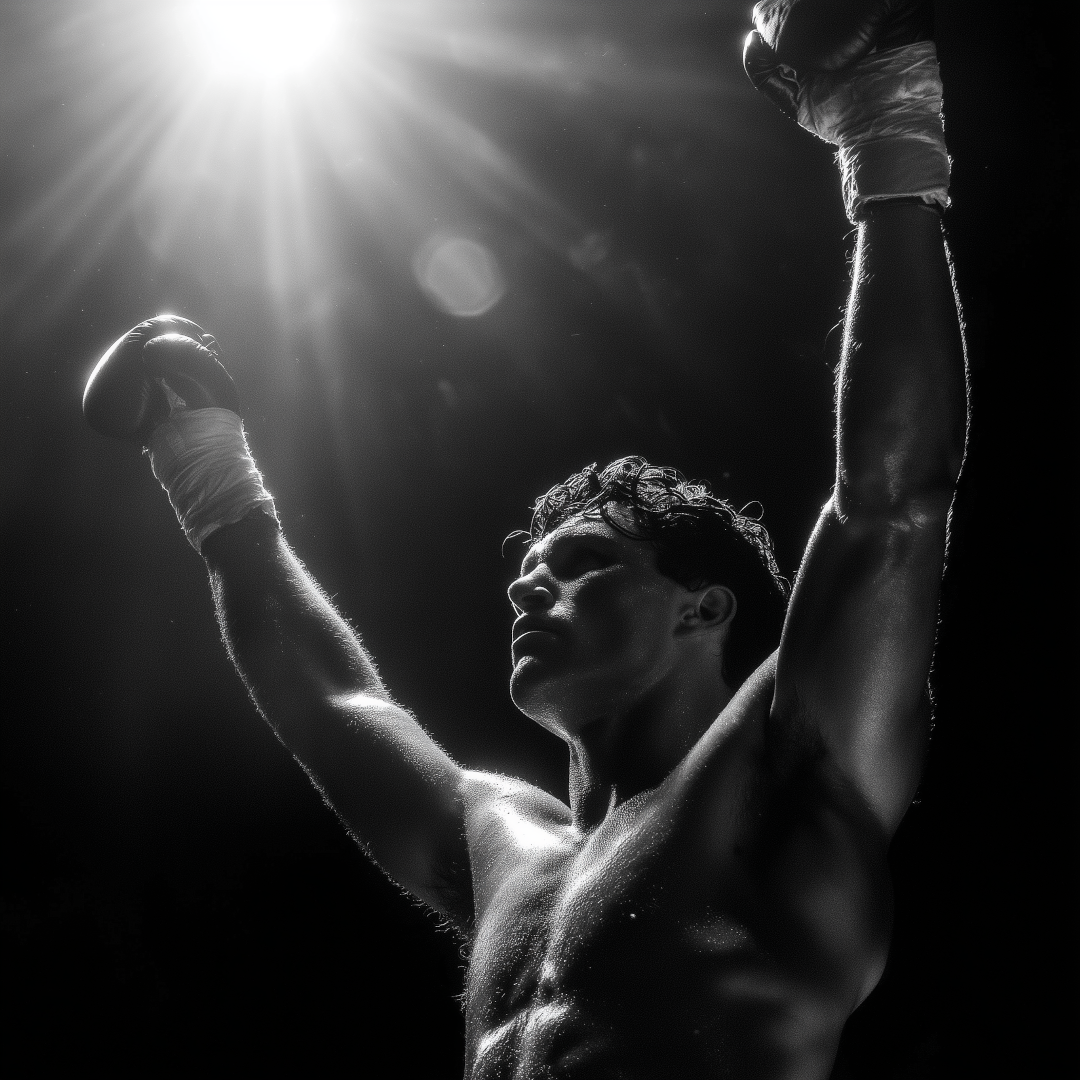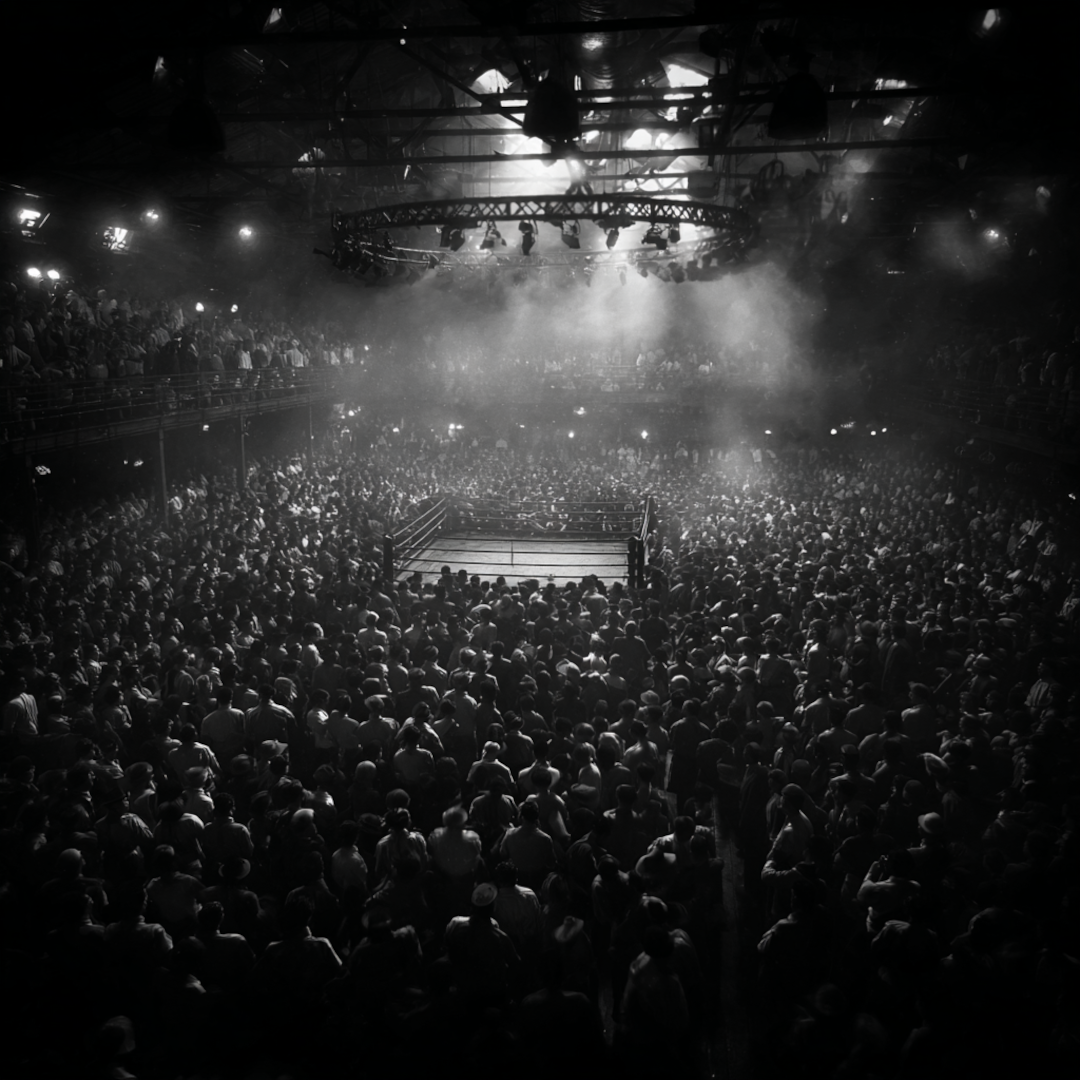Certainly Schmeling looked slower. There was nothing impressive about his foot work, and the men who hadn't spent time on the road will begin to show what ails him along toward the end of the bout. Fortunately for Max, he won on a foul in the fourth round, so his lack of the right sort of work didn't really show up in action. Against Sharkey the German showed no improvement over his match with Risko. As a matter of fact, I don't think he was as good. Jack succeeded in drawing him in and countering. He made Schmeling miss a lot—and poor judgment of distance is inevitable in a fighter who has had a long layoff. Sharkey was absolutely confident that he could whip Schmeling, and his confidence was justified by what happened in the ring. Not one of the opponents gave him less trouble. Jack knocked out Tommy Loughran in three rounds, set up to the time Sharkey put over that lightning finishing punch, Tom had been giving him all he could handle.

The German didn't. He was outboxed and out-hit and out-thought from the first bell. The only point on which he surprised me was his ability to take a punch. He had been knocked out by Larry Gains and Gypsy Daniels earlier in his career, and in none of his American bouts had he been forced to meet a real hitter. So, when Sharkey blasted him on the jaw with right-handers that were labeled death and destruction, it was a little surprising to see Max throw them off and come right back for more. Schmeling showed one bad hitting fault in training. He had a habit of knocking down his opponent's leads with his right hand, and then before he could shoot a punch himself he had to draw the arm back. This telegraphed the punch even to casual spectators at the ringside. There were other faults in the Uhlan's boxing, too, that proved that he not only wasn't a finished performer, but had some of the errors of a novice. His handlers at that time pressed their efforts to change his style. He had developed it because, as a youngster, he was a great admirer of Dempsey. He had studied moving pictures of the old champion, and once even boxed with Jack when the latter was on a European trip. Of course, he didn't have Dempsey's cat-like speed, though he is fairly fast; and he hadn't learned to shift, either. But the style was his. He was at home with it.

Not being in Schmeling's camp, it was none of my business to offer suggestions. I am pointing out these facts as a disinterested observer. As I have said, Max showed no improvement against Sharkey, and I don't believe he will improve in future bouts, either. This may seem like a radical statement. I don't think it is. Usually, when a boxer fails to better his performance, it is because he lacks intelligence; or because he is stubborn and won't accept advice. I don't think either of these things is true in the German's case. He has brains and is well educated, even though he isn't, in my opinion, a smart fighter. The drawback is his hitting; he stiffened last winter. If he, as I think likely, fails to go ahead, the cause will be physical rather than mental. Before the Sharkey-Schmeling fight, I picked the sailor to win. It seemed to me that he was a better boxer, a better hitter with both hands, and had a more natural ring intelligence despite his hot temperament and likelihood of going off at a tangent. Schmeling's performance in training was so mediocre and Sharkey's so brilliant that my belief was further strengthened.





























































































































